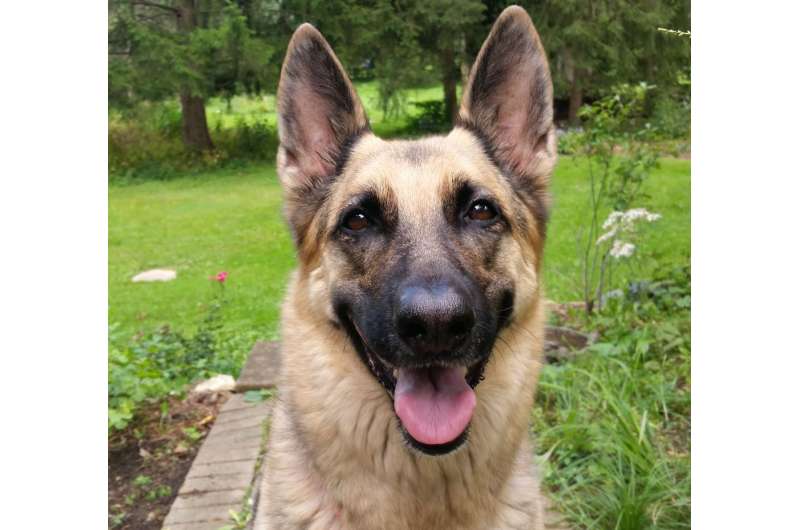Dogs detect breast cancer from bandage: researchers

Dogs can sniff out cancer from a piece of cloth which had touched the breast of a woman with a tumour, researchers said Friday, announcing the results of an unusual, but promising, diagnostic trial.
With just six months of training, a pair of German Shepherds became 100-percent accurate in their new role as breast cancer spotters, the team said.
The technique is simple, non-invasive and cheap, and may revolutionise cancer detection in countries where mammograms are hard to come by.
"In these countries, there are oncologists, there are surgeons, but in rural areas often there is limited access to diagnostics," Isabelle Fromantin, who leads project Kdog, told journalists in Paris.
This means that "people arrive too late," to receive life-saving treatment, she added. "If this works, we can roll it out rapidly."
Working on the assumption that breast cancer cells have a distinguishing smell which sensitive dog noses will pick up, the team collected samples from 31 cancer patients.
These were pieces of bandage that patients had held against their affected breast.
With the help of canine specialist Jacky Experton, the team trained German Shepherds Thor and Nykios to recognise cancerous rags from non-cancerous ones.
"It is all based on game-playing" and reward, he explained.
After six months, the dogs were put to the test over several days in January and February this year.
This time, the researchers used 31 bandages from different cancer patients than those the dogs had been trained on.
One bandage was used per experiment, along with three samples from women with no cancer.
Saving lives
Each bandage was placed in a box with a large cone which the dogs could stick their noses into, sniffing at each in turn—four boxes per test.
The exercise was repeated once with each sample, meaning there were 62 individual responses from the dogs in all.
In the first round, the dogs detected 28 out of the 31 cancerous bandages—a 90-percent pass rate, the researchers announced.
On the second try, they scored 100 percent—sitting down in front of the box containing the cancerous sample with their muzzle pressed deep into the cone.
"There is technology that works very well, but sometimes simpler things, more obvious things, can also help," said Amaury Martin of the Curie Institute, citing the many untested stories of dogs having detected cancer in their owners.
"Our aim was see if we can move from conventional wisdom to... real science, with all the clinical and research validation that this entails."
This was the proof-of-concept phase of Kdog.
The next step will be a clinical trial with more patients and another two dogs, but the team is still in need of project funding.
The team believes that one day dogs may be replaced by "sniffing" machines, possibly armies of electronic diagnosticians dedicated to analysing samples that people far from clinics would send them by the post.
In the meantime, Experton said there is little danger of the trained dogs using their new-found skills to accost cancer sufferers outside the lab.
"These tests happen within a very specific work environment," he explained. "In a different context, these dogs are unlikely to simply pounce on random people in the street."
The team says it is the only one to work with breast cancer detection from skin-touch samples.
Other research projects are testing canines' ability to smell different types of cancer in samples of the skin itself, blood or urine, even the air people exhale.
In France, the chances of surviving ten years after a breast cancer diagnosis is about 85 percent, compared to around 50 percent in poorer countries.
© 2017 AFP

















